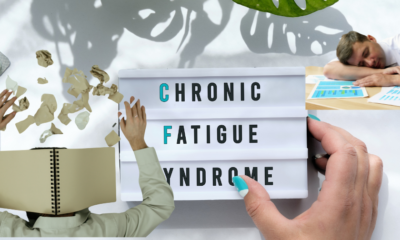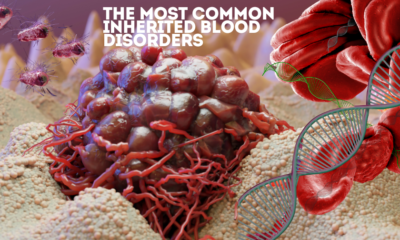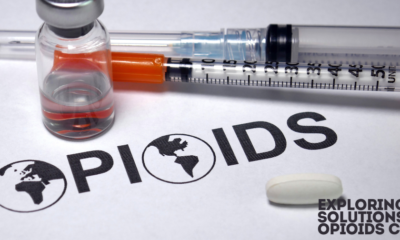Mental Health
Depression and Anxiety: Recognizing Symptoms and Seeking Help
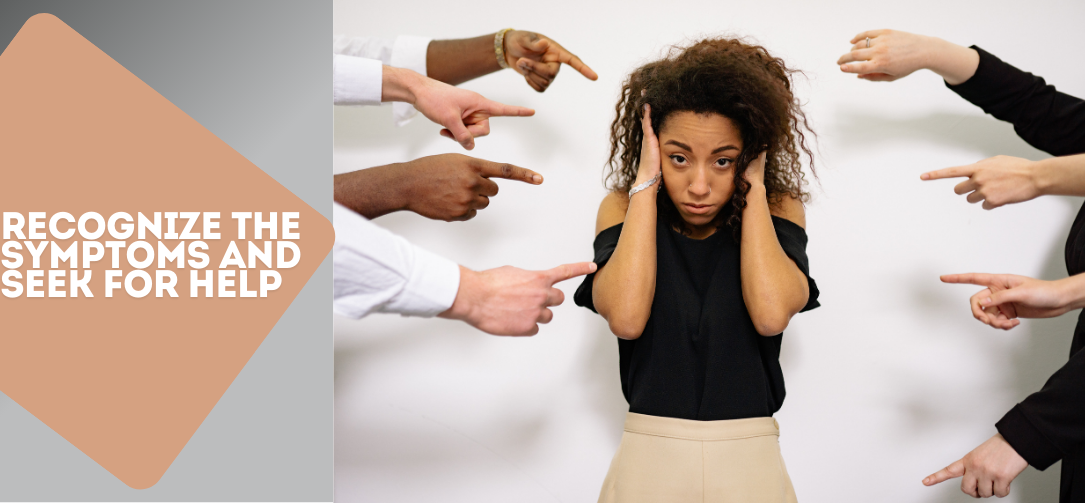
Depression and anxiety are two of the most common mental health disorders worldwide, affecting millions of people each year. Though they are distinct conditions, depression and anxiety often occur together, creating a complex web of symptoms that can be challenging to manage without professional help. Understanding these conditions, how they manifest, how they differ, and what steps can be taken to manage them is crucial for anyone who has experienced mental health challenges or wants to support a loved one who does. This article aims to explore the nature of depression and anxiety, recognize their symptoms, and offer guidance on seeking help.
Understanding Depression
Depression, also known as Major Depressive Disorder (MDD), is more than just a temporary feeling of sadness or “the blues.” It is a chronic mental health condition that affects how a person thinks, feels, and behaves, leading to a variety of emotional and physical problems. Depression can make it difficult for a person to function in their daily lives, impacting their ability to work, study, eat, sleep, and enjoy life.
Causes of Depression
The exact cause of depression remains unknown, but it is generally understood as a combination of genetic, biological, environmental, and psychological factors. Some potential contributors include:
1. Genetics: Studies have shown that depression can run in families, suggesting a genetic predisposition to the condition.
2. Brain Chemistry Imbalance: Neurotransmitters like serotonin, dopamine, and norepinephrine play a crucial role in regulating mood. An imbalance in these chemicals may contribute to the onset of depression.
3. Hormonal Changes: Hormonal imbalances or changes due to pregnancy, menopause, thyroid problems, or other conditions can trigger depression.
4.Trauma and Stress: Childhood trauma, loss of a loved one, chronic stress, or abusive relationships can also contribute to developing depression.
5. Medical Conditions: Certain chronic illnesses, like heart disease, diabetes, and cancer, are linked to higher rates of depression. Medications for these conditions can also have depressive side effects.
6. Substance Abuse: Alcohol and drug abuse can significantly increase the risk of developing depression and may also worsen its symptoms.
Symptoms of Depression
Depression manifests differently in everyone, but common symptoms can be grouped into emotional, cognitive, behavioral, and physical categories:
1. Emotional Symptoms:
- Persistent sadness or feelings of emptiness
- Irritability or frustration, even over minor matters
- Feelings of guilt, worthlessness, or helplessness
- Loss of interest or pleasure in hobbies and activities once enjoyed
2. Cognitive Symptoms:
- Difficulty concentrating, remembering details, or making decisions
- Pervasive thoughts of death, suicide, or self-harm
- An overwhelming sense of hopelessness
3. Behavioral Symptoms:
- Social withdrawal and isolation
- Decreased participation in work, school, or home activities
- Neglecting personal responsibilities and self-care
4. Physical Symptoms:
- Changes in appetite either eating too much or too little
- Sleep disturbances, such as insomnia or oversleeping
- Fatigue, low energy, or persistent tiredness
- Physical pain, such as headaches, cramps, or digestive problems without a clear cause
These symptoms must persist for at least two weeks to be considered clinical depression, and they often vary in intensity from mild to severe.
Understanding Anxiety
Anxiety disorders, on the other hand, are characterized by excessive fear or worry that is difficult to control. While some anxiety is a normal part of life and can even be helpful in motivating us to prepare for important events, chronic anxiety is debilitating. Anxiety disorders can take several forms, including Generalized Anxiety Disorder (GAD), Panic Disorder, Social Anxiety Disorder, and Specific Phobias.
Causes of Anxiety
Like depression, anxiety disorders are caused by a combination of factors. These may include:
Genetics: Anxiety disorders often run in families, indicating a genetic component.
Brain Function: Certain brain regions associated with controlling fear and emotion may be more active in individuals with anxiety disorders.
Environmental Stress: Traumatic events, such as violence, accidents, or a significant life change, can trigger anxiety disorders.
Personality Factors: Individuals who exhibit particular personality traits, like being a perfectionist or overly self-critical, are at a higher risk of developing anxiety disorders.
Medical Factors: Chronic conditions like heart disease, diabetes, and thyroid problems can be associated with anxiety disorders. Certain medications can also trigger or exacerbate anxiety symptoms.
Symptoms of Anxiety
Symptoms of anxiety can also be categorized into emotional, cognitive, behavioral, and physical groups:
1. Emotional Symptoms:
- Persistent worry, apprehension, or fear
- Feelings of dread or anticipating the worst
- Irritability and mood swings
2. Cognitive Symptoms:
- Racing thoughts and an inability to focus
- Difficulty in controlling worry
- Overthinking or ruminating on worst-case scenarios
3. Behavioral Symptoms:
- Avoiding anxiety-provoking situations or places
- Restlessness and inability to relax
- Procrastination or delaying tasks due to overwhelming worry
4. Physical Symptoms:
- Rapid heartbeat, palpitations, or chest pain
- Sweating, trembling, or shaking
- Shortness of breath or feeling light-headed
- Gastrointestinal issues, such as nausea or diarrhea
- Muscle tension or headaches
While anxiety symptoms can occur sporadically and in response to specific situations, chronic anxiety means these symptoms persist and interfere significantly with daily life.
Overlap and Comorbidity of Depression and Anxiety
Depression and anxiety often occur together, with studies indicating that nearly half of those diagnosed with depression also have an anxiety disorder. This co-occurrence can make diagnosis and treatment more challenging, as the symptoms often feed into one another. Anxiety can exacerbate depressive symptoms by increasing feelings of helplessness and worry, while depression can deepen anxiety by reducing the ability to cope with stressors. This cyclical nature underscores the importance of a comprehensive approach to treatment that addresses both conditions.
Recognizing the Signs and Seeking Help
Recognizing the signs of depression and anxiety is the first step towards seeking help. Unfortunately, many individuals may not even realize they are suffering from these conditions, or they may feel ashamed to seek help due to societal stigma surrounding mental health issues. It is important to understand that mental health disorders are medical conditions just like diabetes or hypertension and require appropriate care and management.
Steps to Recognizing Symptoms
1. Self-Awareness and Reflection: Pay attention to changes in mood, energy levels, and overall behavior. Keep a journal to track these changes, noting any triggers or patterns that emerge.
2. Feedback from Others: Sometimes, family members, friends, or colleagues may notice changes in behavior before the affected individual does. Listening to their concerns can provide valuable insight.
3. Taking Mental Health Screenings: Various organizations offer free, confidential online screenings for depression and anxiety. These tools can help gauge whether professional help is needed.
4. Understanding the Severity: Occasional sadness or worry is normal. However, if these feelings are persistent, overwhelming, and impacting daily functioning, it may be time to seek help.
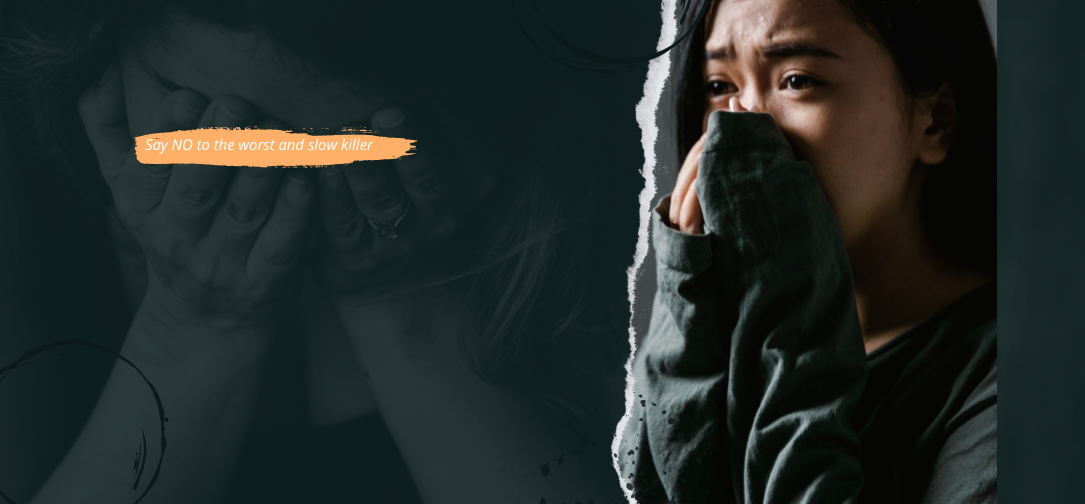
Seeking Professional Help
If you suspect that you or someone you know is suffering from depression or anxiety, it is crucial to seek professional help. There are several steps in the process:
1. Primary Care Provider: Start with a visit to a primary care provider, who can rule out any medical conditions that might be causing the symptoms and refer you to a mental health specialist if needed.
2. Mental Health Specialists:
- Psychiatrists: Medical doctors who specialize in mental health and can prescribe medications.
- Psychologists: Professionals who can provide therapy but generally do not prescribe medications.
- Licensed Therapists/Counselors: These professionals provide therapy to help individuals manage their conditions but may not have the authority to prescribe medications.
3. Types of Therapy:
- Cognitive Behavioral Therapy (CBT): Focuses on changing negative thought patterns that contribute to anxiety and depression.
- Dialectical Behavior Therapy (DBT): A form of CBT that is effective for those with severe symptoms, including self-harm.
- Psychodynamic Therapy: Explores past experiences and relationships to understand current behaviors and thought patterns.
- Exposure Therapy: Especially useful for anxiety disorders, this therapy involves gradual exposure to feared objects or situations to reduce sensitivity.
4. Medication Options:
- Antidepressants: Commonly prescribed for depression and sometimes for anxiety; includes SSRIs (Selective Serotonin Reuptake Inhibitors) like Prozac and Zoloft.
- Anxiolytics: Medications like benzodiazepines (e.g., Xanax, Valium) are prescribed for short-term anxiety relief but are not recommended for long-term use due to addiction risks.
- Mood Stabilizers and Antipsychotics: Occasionally used for severe cases where other medications are not effective.
5. Support Groups:
Many people find comfort in sharing their experiences with others who understand what they are going through. Support groups, both in-person and online, can provide a sense of community and reduce feelings of isolation.
Self-Care Strategies for Managing Depression and Anxiety
While professional help is essential for managing depression and anxiety, self-care strategies also play a vital role in recovery and maintenance:
Regular Exercise: Physical activity increases endorphins and serotonin levels, which can boost mood and reduce anxiety.
Healthy Diet: A balanced diet rich in whole grains, lean proteins, fruits, and vegetables can have a positive impact on mood and energy levels.
Adequate Sleep: Quality sleep is crucial for mental health. Establishing a regular sleep routine can help regulate mood and reduce anxiety.
Mindfulness and Meditation: Practices like mindfulness, yoga, and deep-breathing exercises can help individuals manage stress and anxiety by promoting relaxation and focus.
Limiting Alcohol and Caffeine: Both substances can exacerbate anxiety and interfere with sleep, so limiting their intake can be beneficial.
Time Management and Setting Boundaries: Learning to manage time effectively and set boundaries can reduce stress and create a sense of control.
Engaging in Pleasurable Activities: Hobbies, art, music, or spending time in nature can provide an emotional boost and help reduce symptoms.
The Importance of Early Intervention
Early intervention is crucial in preventing depression and anxiety from escalating into more severe mental health crises. The earlier someone receives appropriate treatment, the more effective the outcome. Unfortunately, many people wait years before seeking help, often due to stigma, lack of awareness, or fear. Public education on mental health is vital in encouraging more people to seek help sooner rather than later.
Conclusion
Depression and anxiety are complex, multifaceted disorders that require a comprehensive approach to diagnosis and treatment. Recognizing the symptoms and understanding the available options for professional help are the first steps toward recovery. Through a combination of therapy, medication, lifestyle changes, and support from loved ones and professionals, individuals with depression and anxiety can lead fulfilling and meaningful lives. Stigmatizing mental health disorders only serves to create barriers; open conversations and education will pave the way for more people to get the help they need.
Ultimately, seeking help is a sign of strength, not weakness. It takes courage to confront one’s mental health challenges and take steps toward healing. By understanding depression and anxiety more deeply, society can better support those who are struggling, making the world a more compassionate and supportive place for all.
-

 Press Release6 days ago
Press Release6 days agoCrypto WINNAZ Launches First On-Chain Yield Engine for Meme Coins, Enabling 20x–300x Returns
-

 Press Release3 days ago
Press Release3 days agoBellarium ($BEL) Price Prediction: Could It Hit $5 by 2026?
-

 Press Release1 day ago
Press Release1 day agoPreventive Vaccines Market to Witness Strong Growth by 2035
-

 Press Release3 days ago
Press Release3 days agoWhy Alaxio (ALX) Is a Top Pick for Smart Crypto Investors
-

 Business2 days ago
Business2 days agoHow Managed IT Solutions Help Small Teams Compete at Enterprise Scale
-

 Press Release1 day ago
Press Release1 day agoGreen Bio Chemicals Market Poised for Sustainable Growth amidst Global Shift to Eco-Friendly Alternatives by 2035
-

 Press Release1 day ago
Press Release1 day agoFill-Finish Pharmaceutical Contract Manufacturing Market Expected to Flourish Amid Biopharmaceutical Boom and Global Outsourcing Trend by 2035
-

 Press Release1 day ago
Press Release1 day agoIndustrial Boiler Market Expected to Surpass USD 24.4 Billion by 2035 Amid Growing Demand for Energy Efficiency and Industrialization






